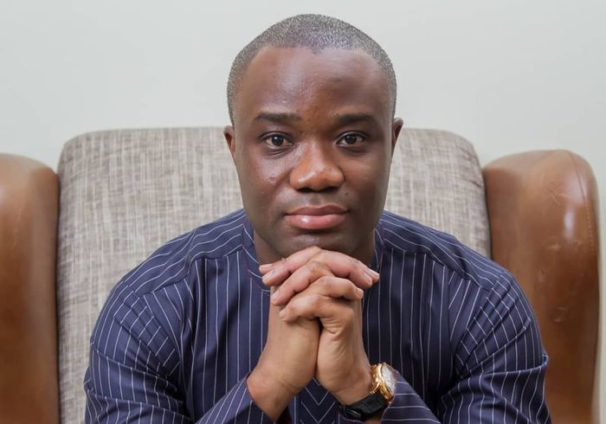
Audio By Carbonatix
Former Deputy Minister for Information, Felix Kwakye Ofosu has said that Ghana currently has the worst credit rating ever in 20 years.
Speaking in an interview on NewsNight on Thursday, he said with this data, he does not understand why Ghanaians would be told that the economy “today is better than in the past.”
“Today, our public debt as of the end of the first quarter in the light of the recent cedi depreciation, is GHC400 billion. Our public debt in 2016 was GHC120 billion the debt to GDP ratio in our estimation is around 85% as we speak. In 2016, it was 66%, the fiscal deficit for 2021 was 12% in 2016, it was 6%. As we speak, we have the worst credit ratings ever in 20 years since the rating started,” he said.
Mr. Kwakye Ofosu made these comments in reaction to the speech delivered by Vice President Dr. Mahamadu Bawumia on the state of economy at a forum organised by the NPP’s National Youth Wing on Thursday.
Dr. Bawumia during his address, stated that, “after a period of sluggish and declining growth, real GDP growth picked up from 3.4% in 2016 to an average of 6.9% between 2017 and 2019. The onset of COVID-19 in 2020 however, resulted in a sharp decline in GDP growth to 0.4% (many countries in the world recorded negative growth).”
He said “the resilience of the economy manifested in 2021 with a pick up of real GDP growth from 0.4% in 2020 to a projected 5.3% in 2021, with the non-oil sector projected to grow at 6.9% in 2021. The average rate of GDP growth for 2017-2021 (including COVID-19 period) was 5.3% compared to an average rate of growth of 3.0% between 2013 and 2016. Therefore, even with COVID-19, the growth of the economy is fundamentally stronger than it was in the 2013-2016 period.”
In response, Mr. Kwakye Fosu said, “what has happened is that they have attempted to blame Covid and then the 6 weeks old Ukrainian-Russian conflict for the economic mess we’ve seen in the last 2 to 3 weeks.”
According to him, the economy has already been mismanaged long before the outbreak of Covid-19.
“They were hiding the true extent of our budget deficit and so increasingly they began to cause disaffection in the international bond and financial market.
“Indeed when the budget was read, just a day after the budget was read, the yields on our bond were increased by bondholders because they did not trust the assumptions and financial calculation that has been done, they saw that this was a government that was claiming that they will increase revenue by as much as 40%. The investors looked at the figures and saw that it will not add up, so they increased their yield just after the budget was read,” he said.
Latest Stories
-
Adom FM’s ‘Strictly Highlife’ lights up La Palm with rhythm and nostalgia in unforgettable experience
2 hours -
Ghana is rising again – Mahama declares
6 hours -
Firefighters subdue blaze at Accra’s Tudu, officials warn of busy fire season ahead
6 hours -
Luv FM’s Family Party In The Park ends in grand style at Rattray park
6 hours -
Mahama targets digital schools, universal healthcare, and food self-sufficiency in 2026
6 hours -
Ghana’s global image boosted by our world-acclaimed reset agenda – Mahama
7 hours -
Full text: Mahama’s New Year message to the nation
7 hours -
The foundation is laid; now we accelerate and expand in 2026 – Mahama
7 hours -
There is no NPP, CPP nor NDC Ghana, only one Ghana – Mahama
7 hours -
Eduwatch praises education financing gains but warns delays, teacher gaps could derail reforms
7 hours -
Kusaal Wikimedians take local language online in 14-day digital campaign
8 hours -
Stop interfering in each other’s roles – Bole-Bamboi MP appeals to traditional rulers for peace
8 hours -
Playback: President Mahama addresses the nation in New Year message
9 hours -
Industrial and Commercial Workers’ Union call for strong work ethics, economic participation in 2026 new year message
11 hours -
Crossover Joy: Churches in Ghana welcome 2026 with fire and faith
11 hours

